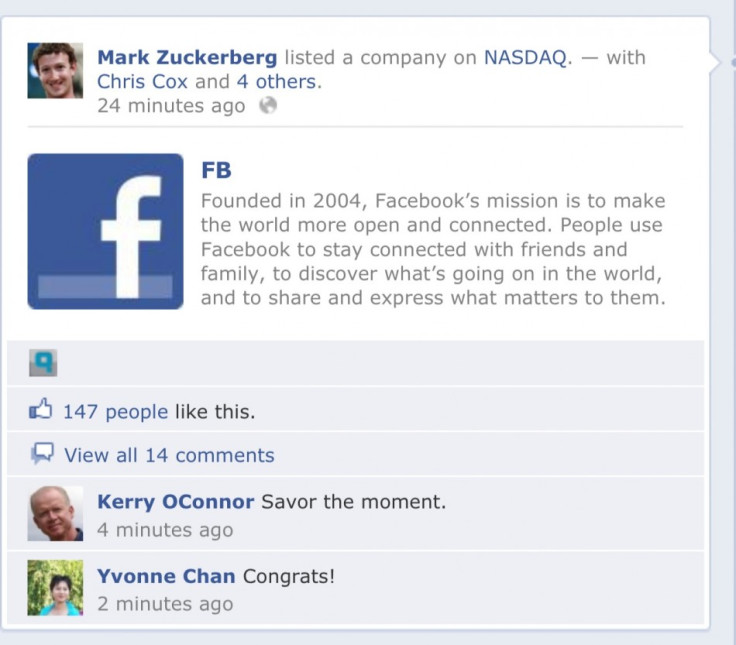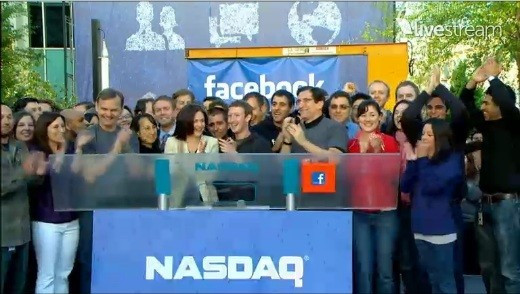Mark Zuckerberg Rings Nasdaq Bell to Open Facebook's First Day of Trading
- Mark Zuckerberg rings bell to open Nasdaq stock exchange
- The Facebook CEO has the bell modified to update his status as he opens the market
- Facebook shares expected to go live at 11:05 local time (16:05 BST)
- IPO will be $16bn, making it the third highest in history behind, General Motors and Visa
The 28-year-old co-founder and CEO of Facebook rang the bell remotely from the company's Menlo Park headquarters in California after he and his team of employees stayed up all Thursday night in a 'hackathon' - an event where new projects are worked on intensively by developers.
While the business and technology worlds were focused on what will happen when trading begins, Zuckerberg was playing hockey with his co-workers during the 24-hour hackathon.

Zuckerberg rang the Nasdaq bell at 9:30am EST to signal the start of Friday's trading, but Facebook's own shares will not hit the markets until 11am EST (4pm BST) to give Wall Street sufficient time to prepare for what will be a chaotic opening day.
Demand for Facebook stock - which has the FB symbol - is huge and the company was forced to increase the amount of shares available by 25 percent during its roadshow last week to match investor interest.
Facebook's IPO is valued at $16bn, with a further $2.4bn available in reserve, which is expected to be sold later this month. In total there will be 484.4 million shares sold at the initial asking price of $38 (£24).

Behind the scenes, Nasdaq engineers have been testing for the big event by rehearsing various scenarios for how the stock will open; a dummy ticker of ZWZZT has been used to allow clients to practice before processing orders for real.
Meanwhile, the New York Stock Exchange is making sure that it too is ready for the heaps of new shares waiting to be added to the market. LATimes reports that there is a dedicated server just for Facebook trading.
While such huge demand suggests Facebook's stock will soar, the site's reliance on ad revenue led it to issue what investors took as a profit warning, stating that it must seek ways to monetise its smartphone applications, which do not yet display adverts, but yield 488 million unique monthly users.

The regular web version of Facebook displays targeted adverts, but a recent survey reveals that just four percent of users click on them often, and a further 57 percent never click on them at all
The company is looking for revenue potential away from advertising, and last week began a trial in New Zealand to see if users would pay a small fee to have their posts appear prominently in friends' news feeds.
To get a grasp of just how big Facebook has become, check out our Facebook by Numbers feature, and for a trip down memory lane looking at how the site has changed since 2004, have a look at our Many Faces of Facebook slideshow.
Must Read:
© Copyright IBTimes 2025. All rights reserved.






















